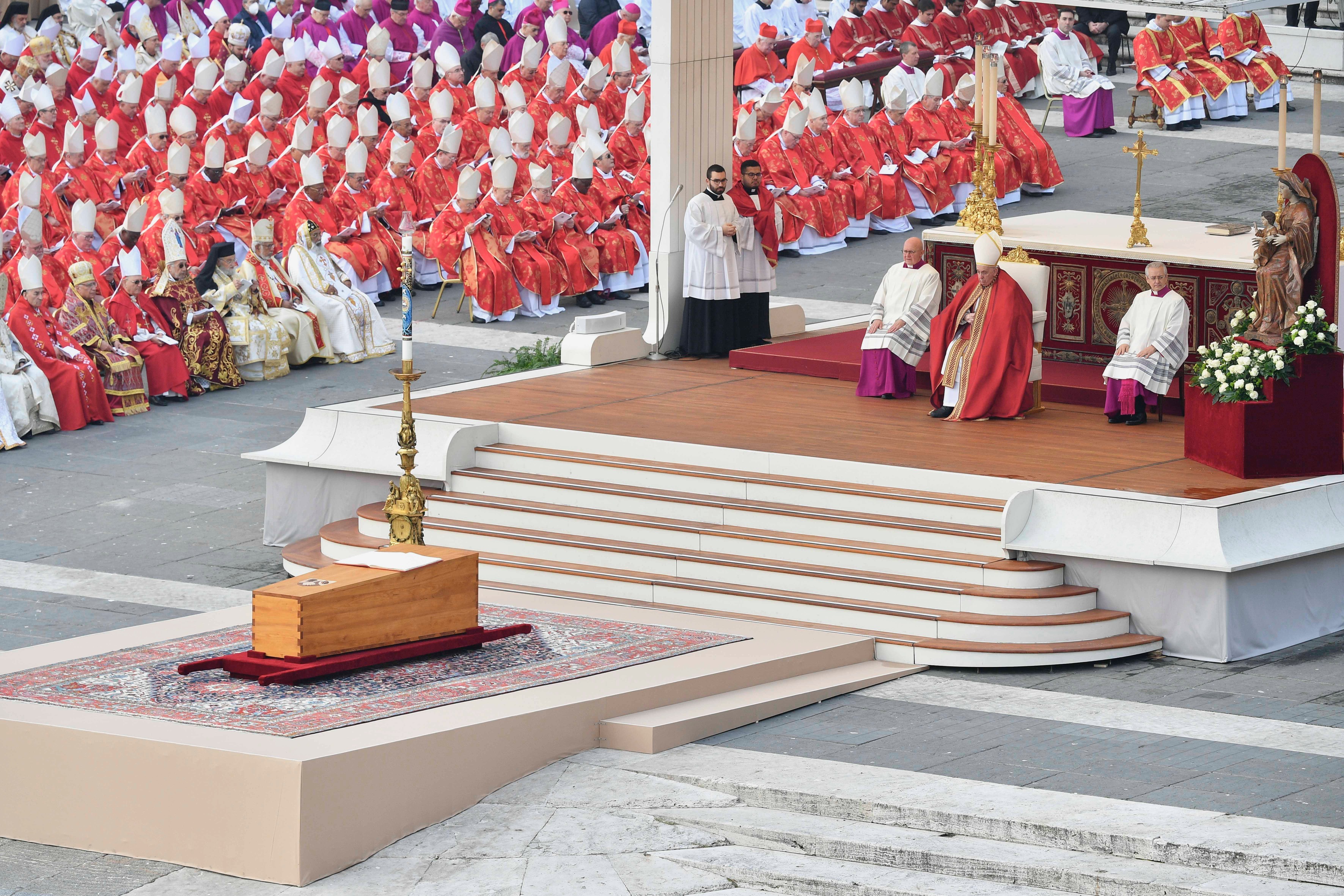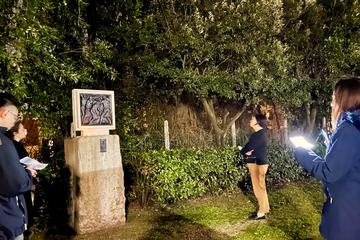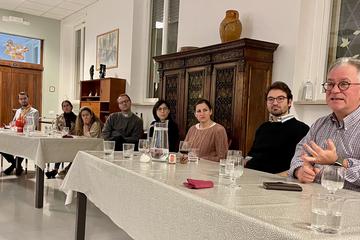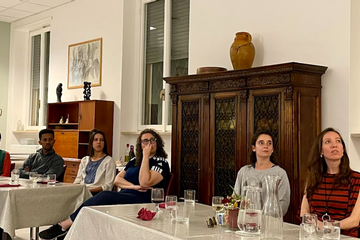
The Lay Centre treasures beautiful memories of the human, cultural and spiritual heritage of Pope Benedict XVI, “faithful friend of Jesus,” as he was defined by Pope Francis in his homily on the occasion of Benedict’s funeral.
Some members of The Lay Centre community, who spent Christmas vacation in Rome, had joined the prayers of faithful from all over the world. They waited in line with other young people, the elderly and families to pay their last respects to a humble worker in the vineyard of the Lord. On the day of the funeral, they went to St. Peter's Square in the early hours of the morning to participate in the prayers of the universal Church, together with Pope Francis.
The Lay Centre community expressed the desire to remember the pontificate of Benedict XVI by sharing meaningful quotes and thoughts that reflect his deep faith, his contemplative attitude and the commitment to make Christ known to the world.
Filip Veber, Slovenia
"We have come to believe in God's love: in these words the Christian can express the fundamental decision of his life. Being Christian is not the result of an ethical choice or a lofty idea, but the encounter with an event, a person, which gives life a new horizon and a decisive direction." (Deus caritas est, no. 1)
Evelyn Blacklock, USA
“Without a certain measure of love, one finds nothing. Someone who does not get involved at least for a while in the experiment of faith, in the experiment of becoming affirmatively involved with the Church, who does not take the risk of looking with the eyes of love, is only exasperating himself. The venture of love is the prerequisite for faith. If it is ventured, then one does not have to hide from the dark areas in the Church. But one discovers that they are not the only thing after all. One discovers that alongside the Church history of scandals there is another Church history that has proved to be fruitful throughout the centuries in great figures such as Augustine, Francis of Assisi, the Dominican priest Las Casas, who fought passionately for the Indians, Vincent de Paul, and John XXIII. He finds that the Church has brought forth in history a gleaming path that cannot be ignored. And the beauty that has sprung up in response to her message and is still manifest to us today in incomparable works of art becomes for him a witness to the truth: something that could express itself in that way cannot be mere darkness. The beauty of the great cathedrals, the beauty of the music that has developed within the context of the faith, the dignity of the Church’s liturgy, and in general the reality of festive celebration, which one cannot make for oneself but can only receive, the elaboration of the seasons in the liturgical year, in which then and now, time and eternity interpenetrate —all that is in my view no insignificant accident. Beauty is the radiance of truth, Thomas Aquinas once said, and one might add that the distortion of the beautiful is the self-irony of lost truth. The lasting impression that the Christian faith was able to make upon history testifies to it, to the truth that stands behind it.” (Ratzinger, Why I Am Still in the Church)
Maria Teresa Avila Fuentes, Mexico
"Each of us is the result of a thought of God. Each of us is willed. Each of us is loved. Each of us is necessary.” Pope Benedict XVI
During a time of vocational discernment, this quote of Pope Benedict XVI helped me to remember the certainty of the love of God for each one of us, and how that love is all due to who God is, not something we win, or merit through our actions. In the end, after all the rich theology that Pope Benedict XVI shared with the world about Christ and his life, the most important thing remains, indeed, that 'Deus caritas est'.
Pedro Paulo Weizenmann, Brazil
"Christianity is not an intellectual system, a collection of dogmas, or a moralism. Christianity is instead an encounter, a love story." Pope Benedict XVI
Bruno Hermes, Brazil
"Together with the Lord in the supreme communion of the Eucharist and reconciled with Him and our neighbor, we will thus be bearers of the peace that the world fails to give. Can the men and women of this world find peace unless they are aware of the need to be reconciled with God, with their neighbor and with themselves? Of high significance in this regard was what the Senate of São Paulo wrote to the Provincial of the Franciscans at the end of the 18th century, calling Brother Galvão a "man of peace and charity." Homily of Benedict XVI, May 11, 2007 - Holy Mass and Canonization of the first Brazilian saint Brother Anthony of Saint Anne Galvão, OFM.
It makes me think about how peace, the much-dreamed-of world peace, the much-promised culture of peace, in order to be achieved, requires much more than institutional arrangements and political juggling. Benedict XVI will point out how all this will only bear fruit if it first undergoes a personal conversion.
Amanda Achtman, Canada
Some of my favourite words from Pope Benedict XVI come from a Christmas address he gave in 2011. Drawing on the joyful experiences of World Youth Days and the existentially rich philosophy of Josef Pieper, he said:
"Only from the You can the I come into itself. Only if it is accepted, can it accept itself. Those who are unloved cannot even love themselves. This sense of being accepted comes in the first instance from other human beings. But all human acceptance is fragile. Ultimately we need a sense of being accepted unconditionally. Only if God accepts me, and I become convinced of this, do I know definitively: it is good that I exist. It is good to be a human being. If every man’s sense of being accepted and loved by God is lost, then there is no longer any answer to the question whether to be a human being is good at all. Doubt concerning human existence becomes more and more insurmountable. Where doubt over God becomes prevalent, then doubt over humanity follows inevitably. We see today how widely this doubt is spreading. We see it in the joylessness, in the inner sadness, that can be read on so many human faces today. Only faith gives me the conviction: it is good that I exist. It is good to be a human being, even in hard times. Faith makes one happy from deep within."
These words have always cut right to my heart. The reminder that human acceptance is fragile and that our truest longing is to be accepted unconditionally is a key to insight about ourselves and others. I think that reflection on the truth in this paragraph can help us to evangelize our society better while persevering in the hope it takes to do it.


